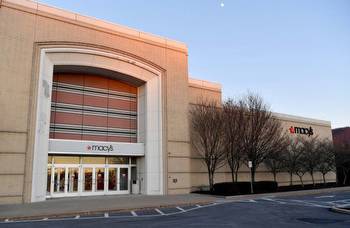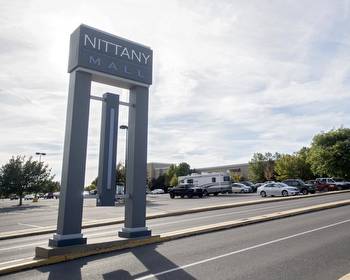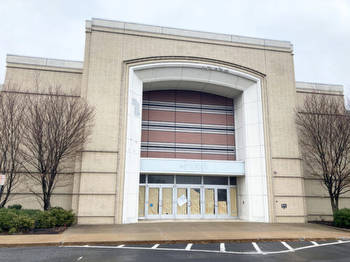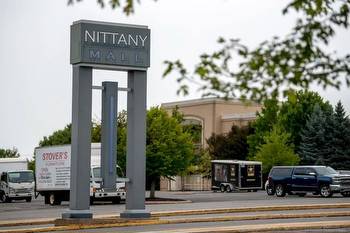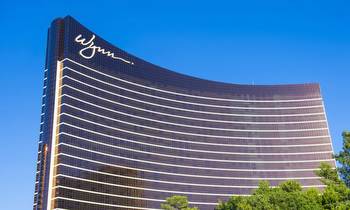Hearing on Nittany Mall Casino Delayed
Preliminary design rendering of the exterior of the proposed casino at the Nittany Mall. Image by Nelson Worldwide
A Pennsylvania Gaming Control Board hearing on the proposed casino at the Nittany Mall has been delayed for at least another month.
A hearing officer in July tentatively scheduled arguments on motions to intervene in developer SC Gaming OpCo’s casino license application for the board’s meeting on Oct. 19, but the hearing did not appear on the meeting agenda posted on Monday.
“There have been numerous documents filed in this matter which need to be reviewed by all parties, including the Gaming Control Board,” PGCB spokesman Doug Harbach wrote in an email. “As a result, the Board is not comfortable moving forward with a hearing this month.”
The next earliest date the hearing could take place is the board’s Nov. 16 meeting. A separate hearing for the board to vote on license approval could only come after those arguments are heard, so PGCB’s December meeting would be the earliest a decision could be rendered on whether to approve the license.
Cordish Companies, which operates as Stadium Casino in Pennsylvania, filed a petition to intervene in August and has separately filed a parallel lawsuit in Commonwealth Court arguing SC Gaming OpCo owner Ira Lubert’s winning $10 million bid in a September 2020 auction to apply for Pennsylvania’s fifth Category 4, or mini-casino, was improperly awarded.
Cordish’s lawsuit and petition allege Lubert, who was eligible to bid because of his ownership interest in Rivers Casino Pittsburgh, violated PGCB rules by subsequently partnering with Bally’s to develop venue at the former Macy’s property and other individuals who would not be eligible to bid on the casino. Local developers Robert Poole and Ara Kervandjian and real estate executive and Penn State Trustee Richard Sokolov are listed as vice presidents for SC Gaming OpCo.
The petition also alleges that Poole and Sokolov helped pay for the $10 million bid, making Lubert’s bid invalid. Cordish contends the alleged violations mean Lubert’s bid should be set aside and Stadium Casino awarded the right to apply for the casino license, or for a new auction to be held.
Lubert has maintained he is the sole owner of SC Gaming OpCo. In responses filed in Commonwealth Court, both Lubert and the PGCB denied any violations of the rules.
The proposed casino would have 750 slot machines, 30 table games and sports betting along with a restaurant and bar, entertainment venue and a multi-outlet quick-serve food and beverage area. In announcing the company’s partnership with Luberty in 2021, Bally’s estimated the project would total $123 million and would take a year to complete pending regulatory approvals.
Since an August 2021 public input hearing on the proposed casino, a vocal contingent of community members have opposed the casino, citing concerns about crime, gambling addiction and strain on resources and infrastructure. They sent myriad letters to the PGCB during the public comment period, which , and called on College Township and Penn State leaders to speak out against the casino.
College Township Council elected not to opt out as a casino host site when given the opportunity in late 2017 and approved a land development plan for exterior improvements to the former Macy’s building last fall.
After multiple public meetings this year in which opponents urged council to take some action to derail the casino, township solicitor Louis Glantz advised in September that the opportunity to opt out as a casino host site expired in 2019 and that council can’t arbitrarily rescind approval for a land development plan that met township ordinances.
On Oct. 6, council also declined to take up a proposed letter to the PGCB that would suggest the casino license should be denied because of community opposition. Glantz wrote in an opinion that doing so would likely result in the township being sued in federal court for deprivation of due process rights and it would risk liability for at least the $20 million already spent by the developer predicated on prior council decisions.
Council further voted 4-1 against forwarding correspondence about the casino received by the township since the state’s public comment period closed. The correspondence appears on the township website and Glantz said the council sending it would be futile at best, since the public comment period has closed and anyone can send a link to the letters to the PGCB. At worst, it could also be construed as interfering with the developer’s due process rights.
The chair of Penn State’s Board of Trustees, meanwhile, said in September that it’s not the university’s place to take an official position on the casino and the school is not involved in the decision about whether it moves forward.
“The proposed casino is planned for a property in College Township, but it is otherwise not associated with Penn State University,” Board Chair Matt Schuyler said. “Decisions regarding whether a casino can be opened are made by local municipalities and the Pennsylvania Gaming Control Board and there are mechanisms in place for individuals to share their opposition to or support of this private endeavor with these decision-making entities.
“The Board of Trustees does not have a stance on this project nor does the board have the means to support or stop the development of a private, legal operation that has been approved by local and state officials.”
Since their inception, the only Category 4 casino to be denied a license was in Beaver County, and that was because developers acknowledged they did not acquire the needed funding to move forward.
StateCollege.com Breaking News
Receive all the latest news and events right to your inbox.










